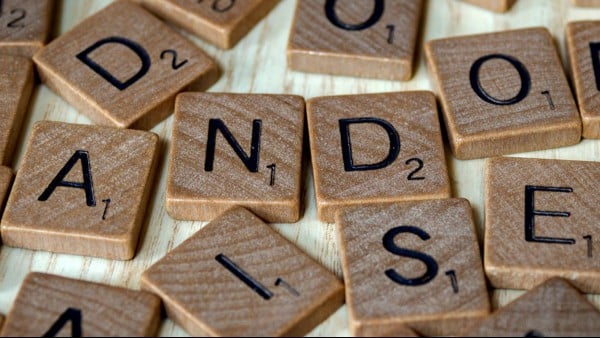The German Alphabet: Your Pronunciation Guide
There’s a misconception that German is harder to learn because of its difficult pronunciation and lengthy words. However, if you start with the basics, you’ll have a smoother time. Whether you want to be proficient in reading, writing, and especially speaking German, it’s important to begin with the core of the language: the alphabet. It helps highlight which parts of the alphabet are familiar to you, which parts are new, and more importantly, how to pronounce them out loud. Once you familiarize yourself with the alphabet and start practicing, you’ll feel more confident in learning new vocabulary. You may even start getting comfortable pronouncing the long words that seemed intimidating at first, and before you know it you’ll be speaking German! Now, let’s get into the German alphabet.
What is the German alphabet?
The first thing you should know is how many letters there are in the German alphabet, which is 30. If we compare the German alphabet to the English alphabet, both share the same 26 letters from A to Z. Congratulations! You’re already familiar with most of the German alphabet. Now, there are only 4 remaining letters that are missing, which are probably new to you: Ä, ö, ü, ß. Let’s talk more about what these new letters are, what they mean, and how to use them.
Here’s what the German alphabet looks like: A,B,C,D,E,F,G,H,I,J,K,L,M,N,O,P,Q,R,S,T,U,V,W,X,Y,Z,Ä,Ö,Ü,ß.
Introduction to the additional German letters
Let’s start with ä, ö, ü. These letters are known as vowels with umlauts, which are the two dots sitting on top of them. The umlaut means that each vowel has a different pronunciation from vowels without the two dots. The letter Ä makes a short “ey” sound, while Ö and Ü have more distinct sounds that we will hear below. The key to pronouncing Ö and Ü is to purse your lips in an O shape as if you were about to whistle. Moving on to our next German letter: The Eszett (ß). The first thing you’ll probably notice is how different it looks from the other letters when it’s writtem. This letter is known as a ligature, which means a letter that has a combination of two sounds from two letters. The two sounds and the two letters can be the same or they can be completely different letters, of course. In this case, the ligature, ß, makes the “ss” sound which is the same as the letter s in the Spanish alphabet. Let’s compare how letters without the dots are pronounced versus the letters with umlauts and also those with “s” versus “ss” and ß with examples.
Pronunciation of German letters
| A | Ä |
| Apfel(apple) | Äpfel(apples) |
| Bar (bar) | Bär(bear) |
| O | Ö |
| Sohn(son) | Söhne(sons) |
| Schon(already) | Schön(beautiful) |
| U | Ü |
| Kuss (kiss) | Küsse(kisses) |
| Bruder(brother) | Brüder(brothers) |
| S | SS | ß |
| Sieben(seven) | Ich muss…(I must…) | Liebe grüße (best wishes) |
| Sagen(say) | Russland(Russia) | Ich heiße…(I’m called) |
Now that we’ve introduced you to the familiar letters of the German alphabet, as well as the new letters, it’s time to put it into practice. Start by pronouncing and even exaggerating the sounds of the letters out loud. The more familiar you are with the alphabet, the easier your language learning experience will be, and this applies to any language you are interested in learning. To read more guides on how to pronounce and use the alphabet in different languages, click on our links below:
- The Italian alphabet
- The Portuguese alphabet
- The French alphabet
- The Turkish alphabet
- The Swedish alphabet
- The Polish alphabet
- The Greek alphabet
- The Indonesian alphabet
- The Norwegian alphabet
- The Danish alphabet
- The Dutch alphabet
- The Russian alphabet
RECOMMENDED NEWS

5 Tips To Build The Perfect Resume
Want to know how to build the perfect resume? First, remember: a resume doesn’t land you a job strai...

How To Talk About Clothes In Danish
Getting dressed is probably one of the first things you do after you wake up. Why not inject a littl...

What Is The Meaning Of ‘Manifest’?
The word “manifest” is rich in meaning and usage, evolving from its historical roots to its contempo...

What Is ‘Word Of The Day’?
Have you ever found yourself at a loss for words when trying to express a complex idea? Or perhaps y...

Foreign Phrases That Will Make You Sound Smart
In today’s globalized world, the ability to sprinkle foreign phrases into your conversations can ele...

What Is Esperanto, And Who Speaks It?
Earth is home to quite a few languages. The most recent estimates say that there are around 7,000 la...
Comments on "The German Alphabet: Your Pronunciation Guide" :